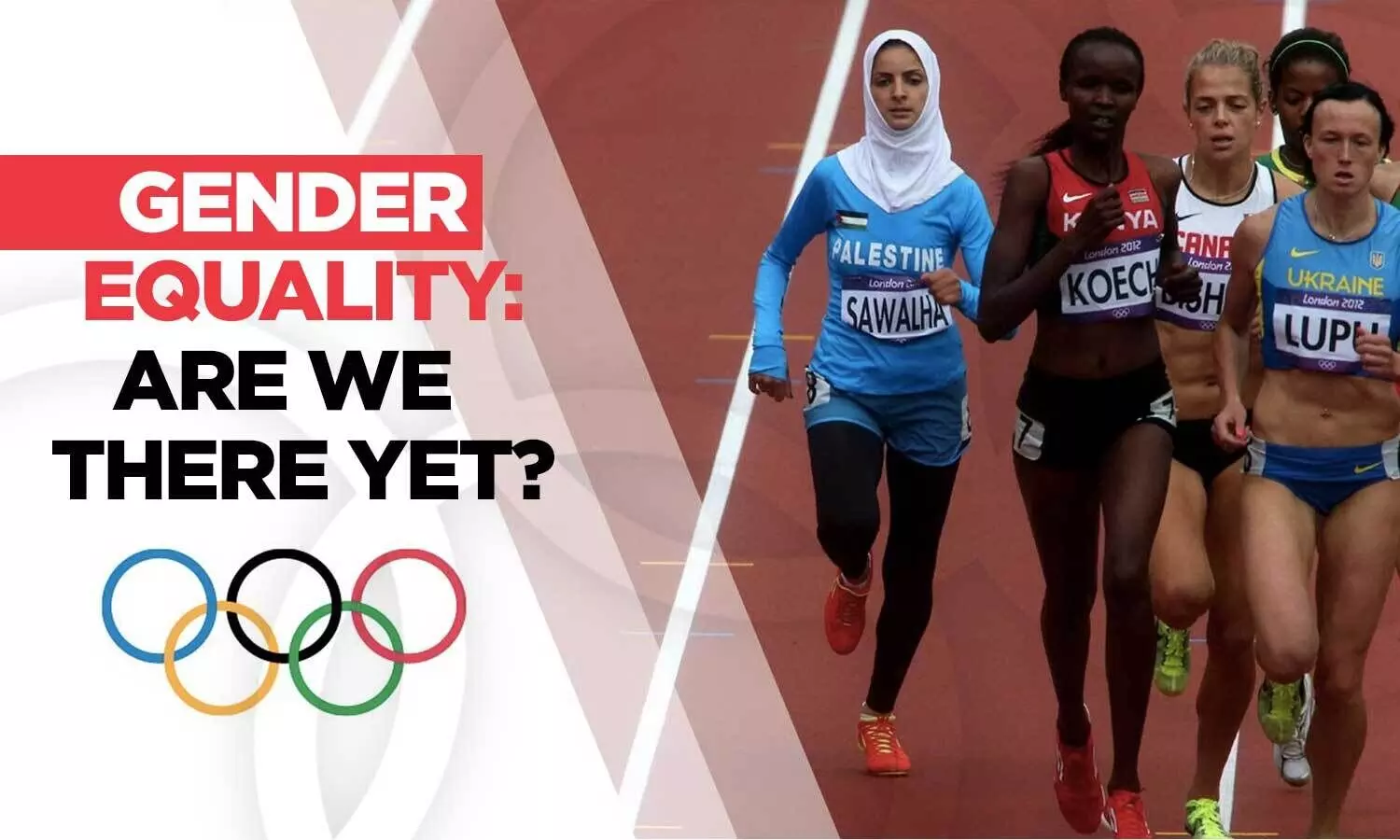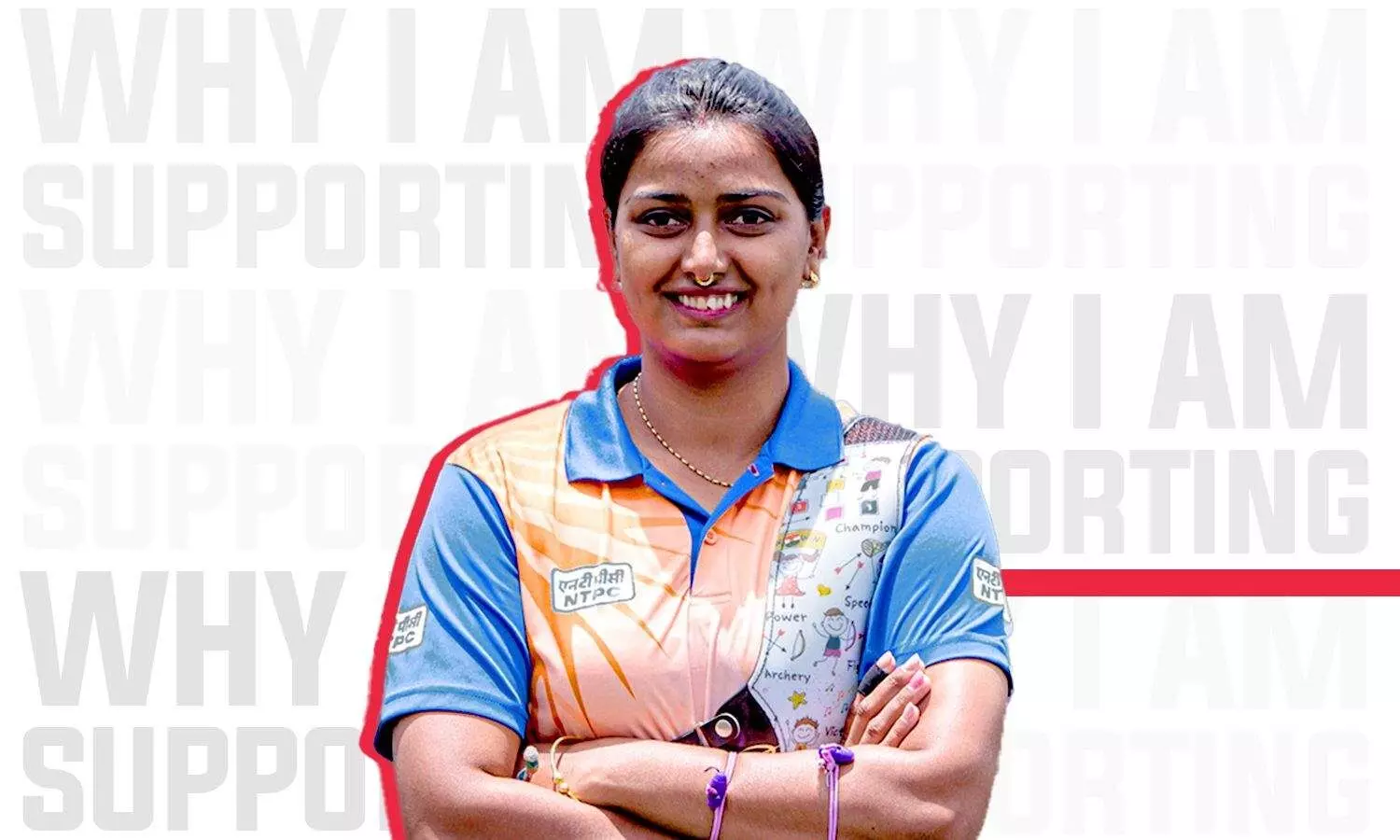Tokyo 2020
A look at India's women power at the Tokyo Olympics
Aiming for Olympic glory, the Indian women athletes led by the likes of Vinesh Phogat, Deepika Kumari and Manu Bhaker are headed to the Tokyo Olympics, donning capes of power blended with talent.
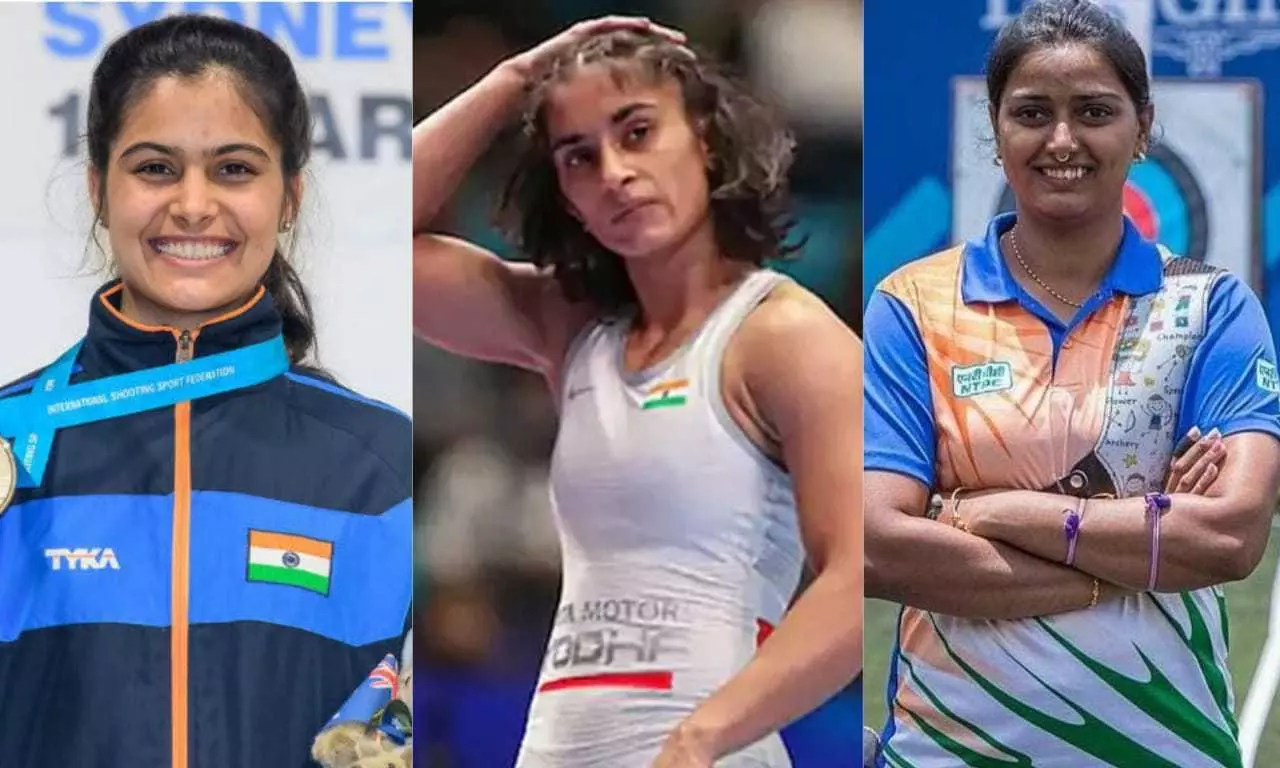
If somebody asks me in a Rapid Fire to name any 5 Olympic medallists from India off the top of my head, my mind wouldn't have to think too much before blurting out - Abhinav Bindra, PV Sindhu, Mary Kom, Sushil Kumar and Sakshi Malik in a single breath. The encroachment of Indian sportswomen both in the Olympics as well as on the table of medallists from the nation has seen a sharp spike with every passing edition of the Olympic Games and this predictively reflex outpour is representative of that.
The upcoming Tokyo Olympics, slated to begin from July 23, promises to be the first gender-balanced Games in Olympic history and is looking forward to equal participation from both men and women. Set to make a mark, female sportswomen are finally making space for themselves in what was historically a male-crowded affair, and the Tokyo Olympics are expected to see a whopping 49% turnout of competing female athletes.
Going into the Tokyo Games, India is gearing up to send a strong contingent this time and have already accumulated 52 women so far on the list of qualified female athletes for the Games. What's special however is that this 52 – which promises to expand in the coming days with withdrawals taking place – is not any ordinary tribe of women. Rather, with athletes like Deepika Kumari, Manu Bhaker, Vinesh Phogat, PV Sindhu, Mirabai Chanu in the heady mix, the Tokyo Olympics will see the Indian contingent rely heavily on the powerful women touted to claim glory at the Games.
If the women helped save face for India at the Rio Games where the country only managed to return with 2 medals – both won by women, the Tokyo Olympics will also see the female athletes continuing their power run at the quadrennial Games, assuredly.
India's lineage of producing star female Olympians who hoist the flag high
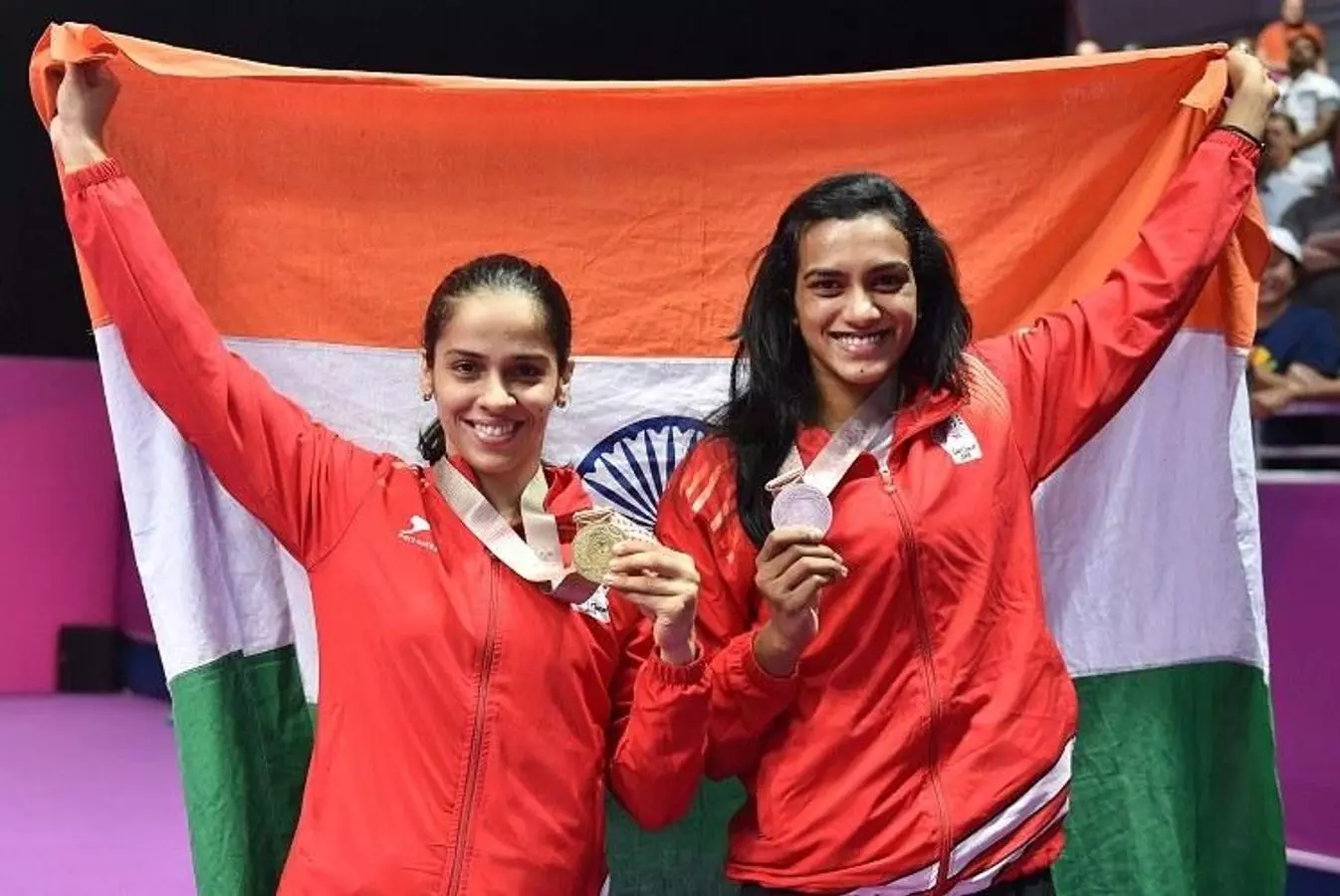
Initially regarded as an all-male domain, the arena of Olympic sports was globally kept out of reach for women athletes. In fact, the founder of the Olympic Games, a certain Frenchman Pierre de Coubertin could not visualise women - 'delicate' and 'fragile' as they were thought and expected to be, could be a part of competitive Olympic sports. The very idea seemed blasphemous and when the Games did begin in 1896 in Greece, women were actually barred from participation.
" . . . the Olympic Games represents the solid period of manifestation of male sports based on internationalism on loyalty as a means, on arts as a background, and the applause of women as a recompense," Pierre Coubertin, the founder of the Olympics had distinctly discriminated.
While the world fought its own battle for gender equality at the Olympics, India struggled with their own, as well. Yet the times have certainly changed for the better as the decades passed - from PT Usha to Karnam Malleswari, a Sania Mirza to a Geeta Phogat or a Sakshi Malik or a Saina Nehwal to a PV Sindhu or Mary Kom - Indian women have been creating their own history at the Olympics and has successfully broken the glass ceiling.
Breaking barriers and redefining the 'feminine'
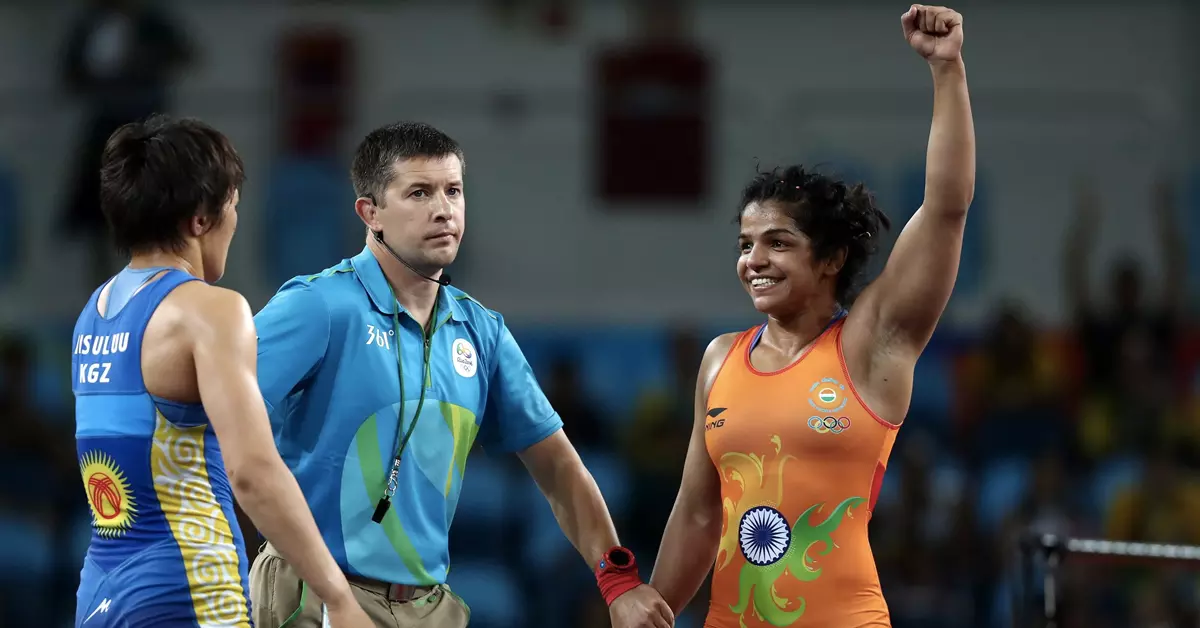
In a country, predominantly rife with discrimination meted out towards the female gender, sports acts as a medium where the lines can be easily blurred. Being liberating in its very construct - sports, with its own language, has its own way of integrating people, without pausing to look at the gender, as such. However, the societal framework is rarely that considerate and historically, females, especially in India, have had to bear the brunt of many such gendered biases being exercised against them.
From times when it was practically taboo to be a female athlete in the country and attract the mire from a bunch of nay-sayers to the present day, where the situations are much kinder and women athletes are now usually greeted with a pat on the back followed by a Shahbash,beti instead - a lot has changed.
Not only in India, but the entire world also partook in believing that if women played sports, they were tampering with their natural 'femininity' and their 'charm', for the longest time. While it would be unfair to say that such discrimination is absolutely absent even now, a lot of progress and a lot of re-definition has taken place to temper such myths and taboos before dispelling them entirely. Women, with their sheer inner strength and the quiet conviction, have battled past many such hard-set barriers, shattering them into pieces, by daring to go where they were never expected to venture.
Participating in 'manly' and 'unladylike' sports like weightlifting, boxing, wrestling - Indian women have tasted success and fame at the Olympics and crumbled the notions of being fragile and weak, at least. More than winning matches on the mat, the boxing ring or the badminton court, the far more difficult challenge is to defeat a mindset but the Indian women have truly shown where the power lies as they have taken charge of their own narrative, especially in the gambit of sports, with their achievements.
"It has been more of a marathon than a sprint, but female Olympians are at last catching their male counterparts in the numbers game," the IOC said in a statement.
Rooting from a history that has essentially seen women as the marginalised sex, the field of sports has been one of the biggest platforms for female athletes to snatch back the agency and restore it for themselves. In India, too, a rapid increase has taken place in females eager to opt for sports as a career choice and the government has also been taking active action to nurture this, for the past few decades. As a result of this wide-scale collaborative effort and coordination between the State and the aspiring female athletes eager to play for their country at the Olympics, a trend has emerged with women showing more interest in sports and going on to medal, as well.
A record number of medal-worthy Indian female athletes to take part at the Tokyo Olympics
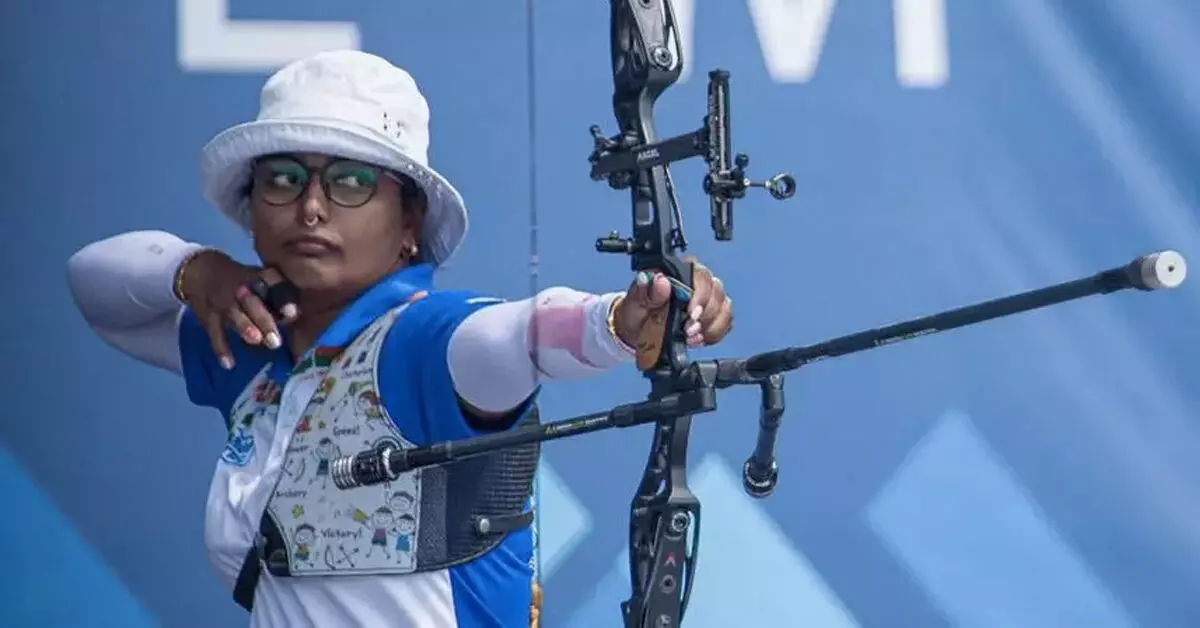
The very first year that Indian women made the journey to the Olympic Games occurred in the 1924 Paris Olympics when two female athletes from India took part. Located in the pre-Independence era still, the four subsequent editions of the Games saw nil participation from Indian women spanning two decades - 1928 to 1948.
With the Second World War concluded and India gaining Independence finally in 1947, sports in the newly-democratic country looked up for women again. However, it wasn't until the 1980 Moscow Games that Indian women became a regular part and parcel of the Olympic entourage from the nation and their numbers kept growing steadily.
A journey that began with 2 Indian female athletes at the quadrennial Games in 1924 expanded in leaps and bounds to stand at 54 at the 2016 Rio Olympics. Interestingly, the Rio Games saw almost equal participation of men and women from India as the men athletes only eked the women out by 9 more members.
The upward curve in female representation at the Olympics is not a figures-only feature as Indian women, since 2000, have gone out and brought home as many as 5 medals from the Olympics, out of the 13 overall won since the beginning of this century. At the 2016 Rio Olympics, India would have had to fly back empty-handed had it not been for the Indian women stepping it up - PV Sindhu played a thriller against Spain's Carolina Marin to fetch a well-earned silver, while freestyle wrestler, Sakshi Malik got hold of the brown metal.
At the upcoming Tokyo Olympics, till now, 116 athletes are expected to head to Japan - in the coming days the numbers are expected to slightly increase as well and might overtake Rio's record of 117 athletes. When it comes to the female athletes - India is expected to firstly, cross the Rio count of 54 and secondly and most importantly, see more medals coming from the powerful women contingent.
The reasons behind it are stark as out of the current 52, there are raging medal favourites headed for the Games who are eager to make their mark and collect the hardware on offer to either open their books or add to their collection. Leading the favourites list to win a medal at Tokyo is wrestler Vinesh Phogat, followed by World No. 1 archer Deepika Kumari, veteran boxer and 2012 London Olympics bronze medallist Mary Kom, weightlifter Mirabai Chanu to Rio Games silver medallist shuttler PV Sindhu and of course, the extremely talented young gun Manu Bhaker are pitched as the biggest female medal contenders in Tokyo.
With barely a month remaining for the Tokyo Olympics to begin, India will be banking a lot on the power of its women to extend the 28-medal tally that the nation already has bagged from the previous Games. As the nation sends its potentially largest contingent to the first gender-balanced Olympics in Tokyo, a lot of eyes and a lot of loud cheers stemming from a lot of hope pinned on the shoulders of these extremely able set of women who don the cape of talent all too naturally will be assuredly present to power them on from India!

